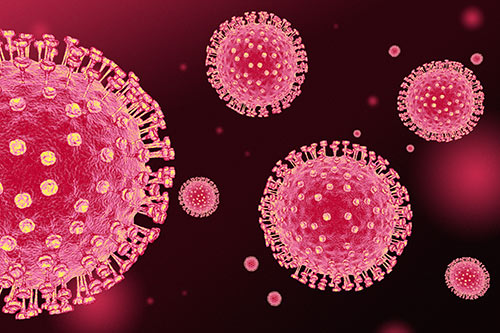With distributors across all five continents, SDCE’s network is experiencing the impact of Coronavirus at all stages of the pandemic’s global development. Since COVID-19 was first identified in China, the impact of the virus has been felt from East to West across every aspect of the business, from the cancellation of trade shows to reduced freight services across regional distribution networks.
As each distributor tries to weather its own regional storm, there is one element uniting the SDCE network – the commitment to remaining as operational as is safe to do so with the wider goal of coming back stronger than ever.
“We are all doing well and following the strict protocol; stay home, stay safe, stay connected,” says Puneet Rawal from his HQ in Delhi, India. “We have been in complete lockdown since the 21 March and will remain so until at least the 15 April, but we are operating as much as we can from home.”
For the director of Ramp Impex – one of SDCE’s longest-standing distributors for India and Bangladesh – the unexpected hiatus has been an opportunity to assess the business’s key policy and strategy with a view to strengthening its position in a post-virus climate.
“We have been reworking our internal policy, pricing and future strategies,” says Rawal. “We predict that specialised and technical textiles will become a bigger focus because the apparel industry has taken over the production of personal protective equipment such as masks. We need to understand the market scenario, and we need to concentrate on the domestic apparel manufacturers – even though they make up a small percentage of our overall sales – to make up our shortfalls elsewhere.”
Although India’s growth forecast for 2020 has been reduced from 5.5 per cent to 2.5 per cent*, Rawal is confident that trade will be back on an even keel by the end of the year. “As per the discussions I have had with reputed decision-makers in the field of fibre, yarn, processing, dyeing and testing, the general consensus is that recovery will take between six and eight months,” he predicts. “We should start seeing some recovery by the end of the third quarter and by the middle of Q4, the market should be getting back on track.”
Over in North Africa meanwhile, the later arrival of COVID-19 gave local businesses the chance to implement key procedures to maintain operations throughout the pandemic. “We saw what happened in countries before the virus reached us,” says Jalel Abderahmen, general manager at TLS in Tunisia, where the virus was not discovered until the 2 March. “We had time to prepare every procedure needed so that we could work from home answering emails and preparing quotations and, to that end, we have no had to implement a full shutdown.”
Already established as SDCE’s distributor for Tunisia, TLS had recently taken on distribution for Belgium with the opening of its new European operation Total Testing Service. Despite the unforeseen challenges presented by the worldwide pandemic, Abderahmen is undeterred in his mission to grow the TLS business throughout 2020 and beyond.
“I am more than confident that our industry will overcome this,” he says. “It is hard to maintain “business as usual” while respecting the new laws put in place by the government, but this will only make us more united. Our suppliers such as SDCE are working with us to overcome this pandemic, and I believe we will come back stronger.”
As the industry looks ahead to resuming some sense of normality after the peak impact of the virus has passed, many distributors already have plans in place to bolster their business models.
“We understand that some of our customers will be in a very difficult financial situation when we have overcome this pandemic,” says Saleem Soreefan, general manager at Supplies Solutions and SDCE’s official distributor for the island of Mauritius. “The Mauritian textile industry was already facing tough competition, and we plan to support our customers by giving them more flexible payment terms to help them to recover and to survive a difficult situation. For now, we are working quite successfully from home with a good internet connection across the island, and we are all safe and well thankfully.
*source: Moody’s Analytics


